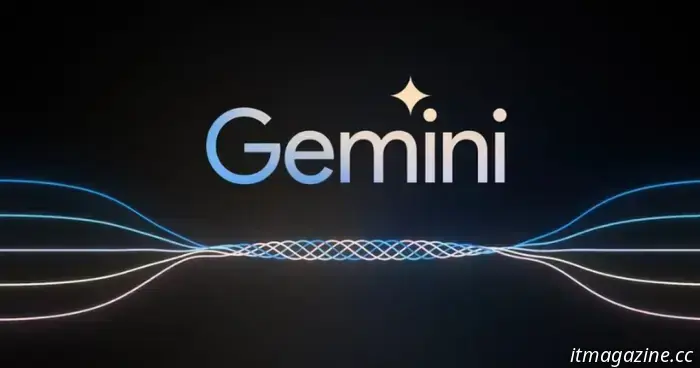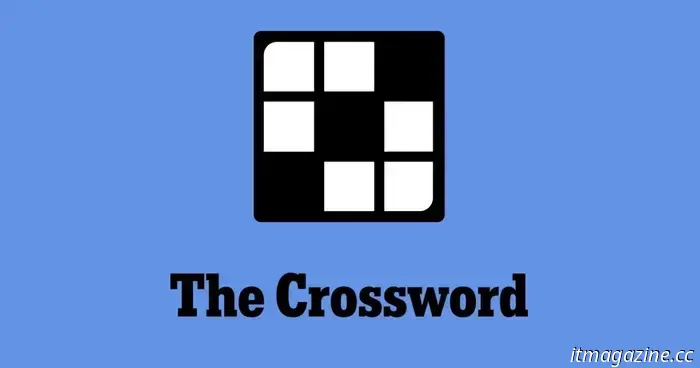
Google's Firebase Studio enables you to create app prototypes in just a few minutes — all without requiring any coding.
Google is transforming its mobile and web app development platform, Firebase, with a "vibe coding" update—changing it from a development tool to a customizable AI app builder. It is currently in a preview stage, accessible to all individual Google users.
Similar to how chatbots like ChatGPT generate text or images based on prompts, Firebase Studio aims to produce app prototypes. For companies, this is designed to greatly expedite the prototyping process, but the noteworthy aspect of "vibe coding" is that non-technical users can also utilize these tools to create personal apps.
Cursor AI is currently one of the most popular applications for this purpose, amassing 360,000 paying subscribers and $200 million in revenue within about 12 months. For instance, Kevin Roose from The New York Times seems to be enjoying vibe coding apps that assist him in packing his son's school lunch or determining whether something fits in his car’s trunk. With the new functionalities of Firebase Studio, Google appears eager to join this trend.
Users have the option to select a template that aligns closely with their idea or to start fresh by simply typing what they need. Firebase Studio will then return a proposal outlining the features it will include, the color scheme and layout, as well as the app’s name. You can modify all these details and hit “prototype” to begin the building process.
As someone who isn't an app developer, the next step seemed a bit surreal to me—lines of code streaming down the screen while the AI model supposedly generated everything. Once completed, the code was replaced by a simple web app prototype. I chose to create an app that converts images of anime food into recipes, so the app awaited my image upload.
At this stage, Firebase Studio requests a “Gemini API key.” In true vibe coding fashion, I clicked the “Generate API key” button to see the outcome. It appeared to work, but when I uploaded my image and clicked “Identify ingredients,” the app encountered another problem.
The AI offered to assist with the issue, but honestly, I had lost interest in the experiment. To me, vibe coding feels like clicking buttons with no real understanding of their functions, which isn’t very enjoyable. However, if you wish to explore it, the approach is to continue asking the AI for fixes, requesting changes, and testing the prototype on the left side until you achieve your desired result.
Now, it remains to be seen if Google will be able to attract vibe coders or if Firebase's user base will predominantly consist of professionals.
Willow Roberts has been a Computing Writer at Digital Trends for a year and has pursued writing for about a decade. She has a…
I observed that Google’s Gemini AI erased copyright indicators, which is deeply concerning.
Update: Google has replied to Digital Trends' inquiries. The article has been updated to include the company’s statement below.
The emergence of generative AI has been quite chaotic, particularly regarding fair usage principles and copyright. AI giants are forming agreements with publishers to prevent legal issues, while simultaneously facing copyright disputes in various countries.
As the demand for training AI on user data escalates, we may be approaching another ethical dilemma. Several users on X and Reddit have showcased how Google’s latest Gemini 2.0 AI model can remove watermarks from copyrighted images.
From the before-and-after comparisons, it appears that Gemini is effectively erasing the watermarks. Notably, it's not only removing standard banner-style watermarks but also complex overlays with design and stylized text elements.
The model in question is the Gemini 2.0 Flash, which was launched earlier this year and has received a reasoning upgrade. It’s important to emphasize that you cannot remove watermarks when using the mobile or desktop versions of the Gemini 2.0 Flash model. Attempting to do so results in a message stating:
“Removing watermarks from images without the explicit permission of the copyright holder is illegal in most countries. It is crucial to respect copyright laws and intellectual property rights. If you wish to use an image with a watermark, you must contact the copyright holder to seek permission.”
However, you can attempt to remove watermarks from images in Google AI Studio. Digital Trends successfully eliminated watermarks from various images using the Gemini 2.0 Flash (Image Generation) Experimental model.
This violates local copyright laws, and any usage of AI-modified materials without proper consent could lead to legal issues. Additionally, this is ethically questionable, which is why artists and authors are legally challenging companies for leveraging their work to train AI models without fair compensation or permission.
What are the results?
A notable point is that the images generated by the AI are of high quality. It effectively removes watermark artifacts while intelligently reconstructing the image at a pixel level. In its present form, it functions similarly to the Magic Eraser feature available in the Google Photos app for smartphones.
Moreover, if the original image is of low quality, Gemini not only eliminates watermark details but






Other articles
 Samsung's latest 'Lite' cordless vacuum offers power comparable to Dyson and features intelligent AI capabilities.
Samsung has introduced a new 'Lite' cordless vacuum that matches the power of Dyson's high-end model.
Samsung's latest 'Lite' cordless vacuum offers power comparable to Dyson and features intelligent AI capabilities.
Samsung has introduced a new 'Lite' cordless vacuum that matches the power of Dyson's high-end model.
 This Keychron mechanical keyboard is a bargain at under $50.
The Keychron K12 mechanical keyboard boasts a compact 60% layout, hot-swappable keycaps, and an impressive 200-hour battery life, available for only $43 on Amazon's Woot.
This Keychron mechanical keyboard is a bargain at under $50.
The Keychron K12 mechanical keyboard boasts a compact 60% layout, hot-swappable keycaps, and an impressive 200-hour battery life, available for only $43 on Amazon's Woot.
 I need these 10 GameCube games available on Nintendo Switch 2 as soon as possible.
The GameCube collection for Switch 2 has made a promising beginning, but we need to see these 10 games included in Switch Online in the near future.
I need these 10 GameCube games available on Nintendo Switch 2 as soon as possible.
The GameCube collection for Switch 2 has made a promising beginning, but we need to see these 10 games included in Switch Online in the near future.
 NYT Crossword: solutions for Thursday, April 10
The crossword puzzle in The New York Times can be challenging, even if it's not the Sunday edition! If you're facing difficulties, we're available to assist you with today’s clues and solutions.
NYT Crossword: solutions for Thursday, April 10
The crossword puzzle in The New York Times can be challenging, even if it's not the Sunday edition! If you're facing difficulties, we're available to assist you with today’s clues and solutions.
 AMD's Ryzen 8000HX processors are now available in laptops, though you may not notice a significant difference.
AMD has recently introduced several new processors for laptops, which will be launched alongside some of the top graphics cards.
AMD's Ryzen 8000HX processors are now available in laptops, though you may not notice a significant difference.
AMD has recently introduced several new processors for laptops, which will be launched alongside some of the top graphics cards.
 The Oppo Find X8 Ultra is the camera flagship I wish I could purchase.
The Oppo Find X8 Ultra features four 50-megapixel cameras, a large battery that supports 100W charging, and a top-tier Qualcomm processor, all housed in an elegant design.
The Oppo Find X8 Ultra is the camera flagship I wish I could purchase.
The Oppo Find X8 Ultra features four 50-megapixel cameras, a large battery that supports 100W charging, and a top-tier Qualcomm processor, all housed in an elegant design.
Google's Firebase Studio enables you to create app prototypes in just a few minutes — all without requiring any coding.
Google has introduced significant enhancements to its app development platform, featuring prompt-based app prototypes that anyone can experiment with.
